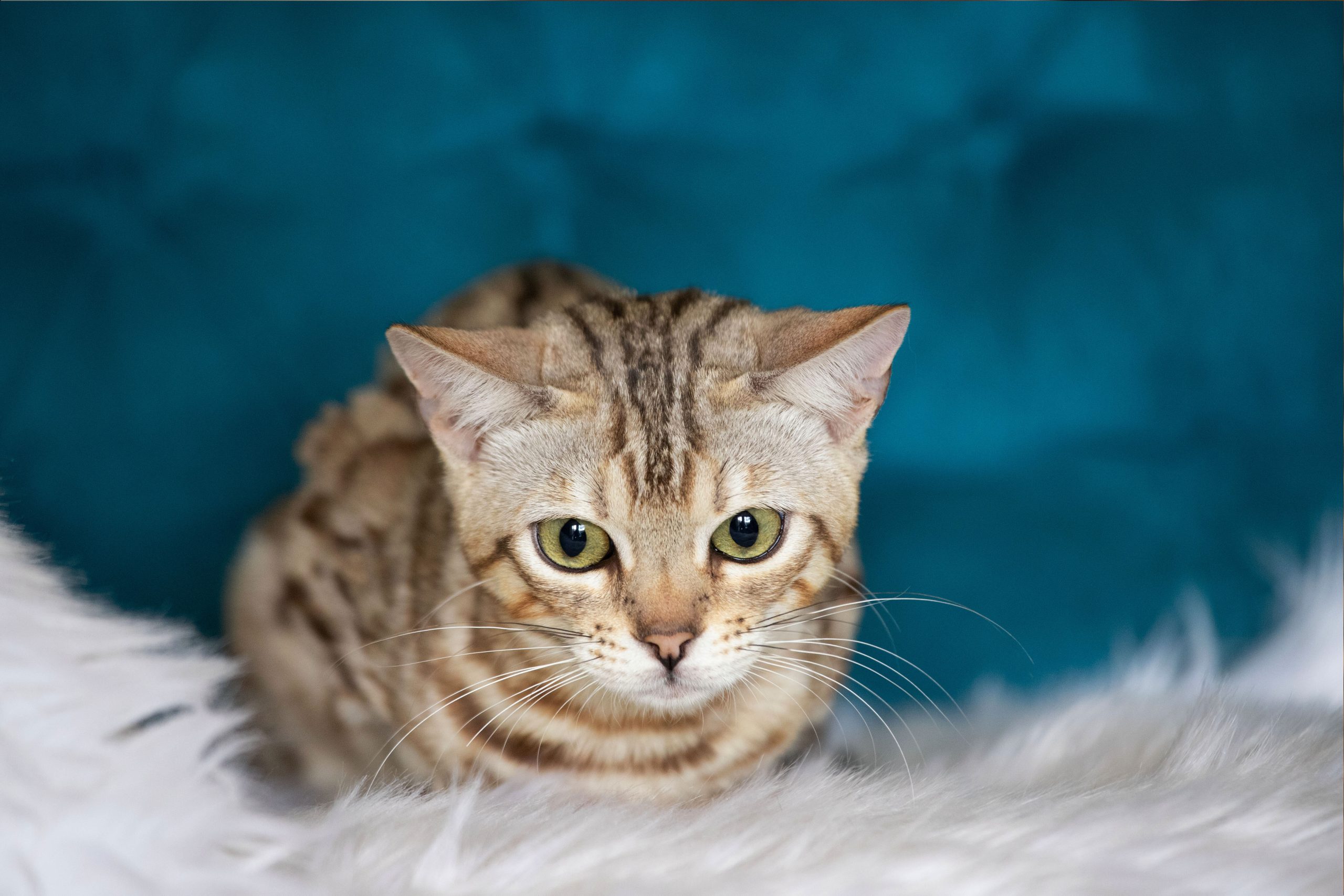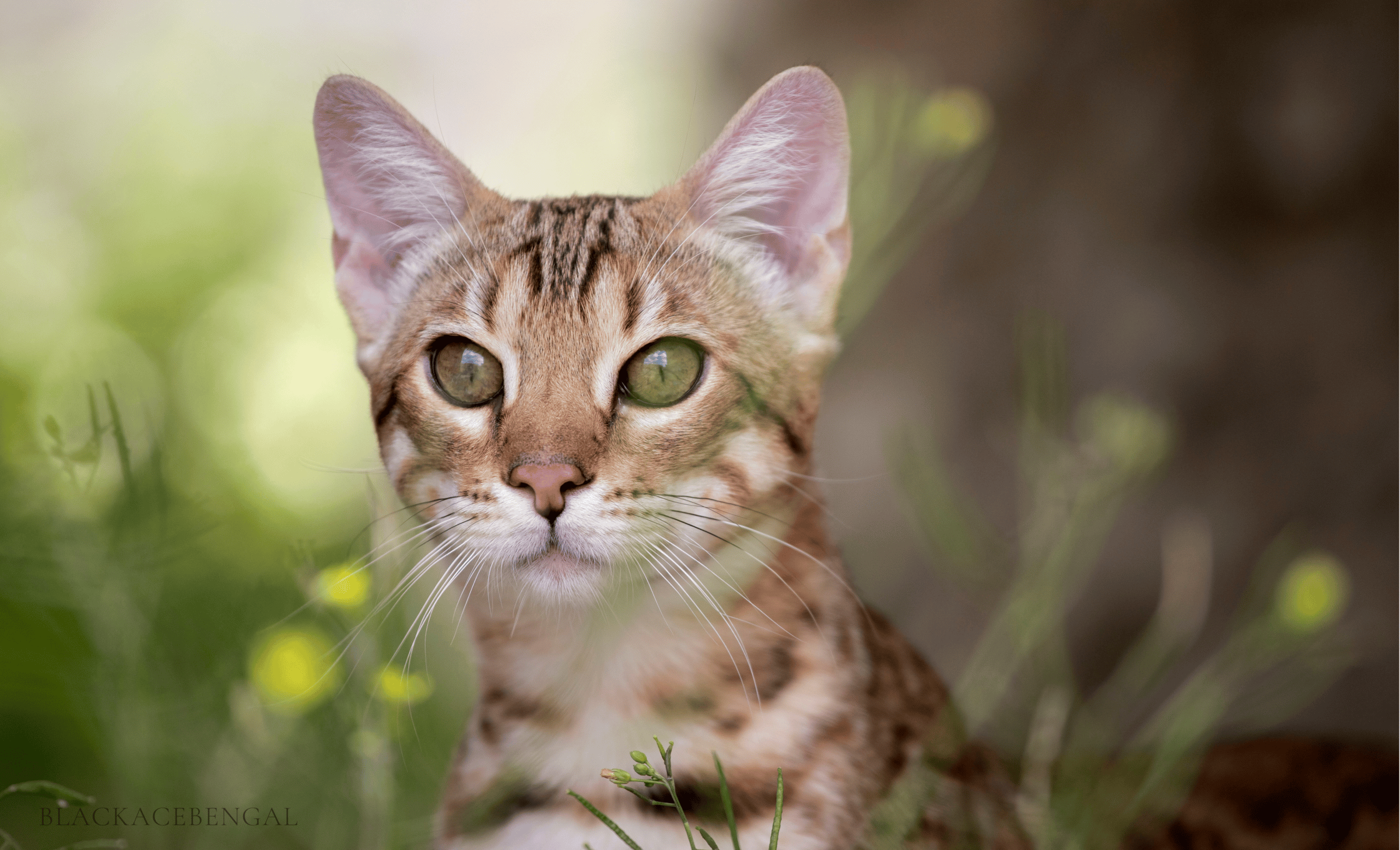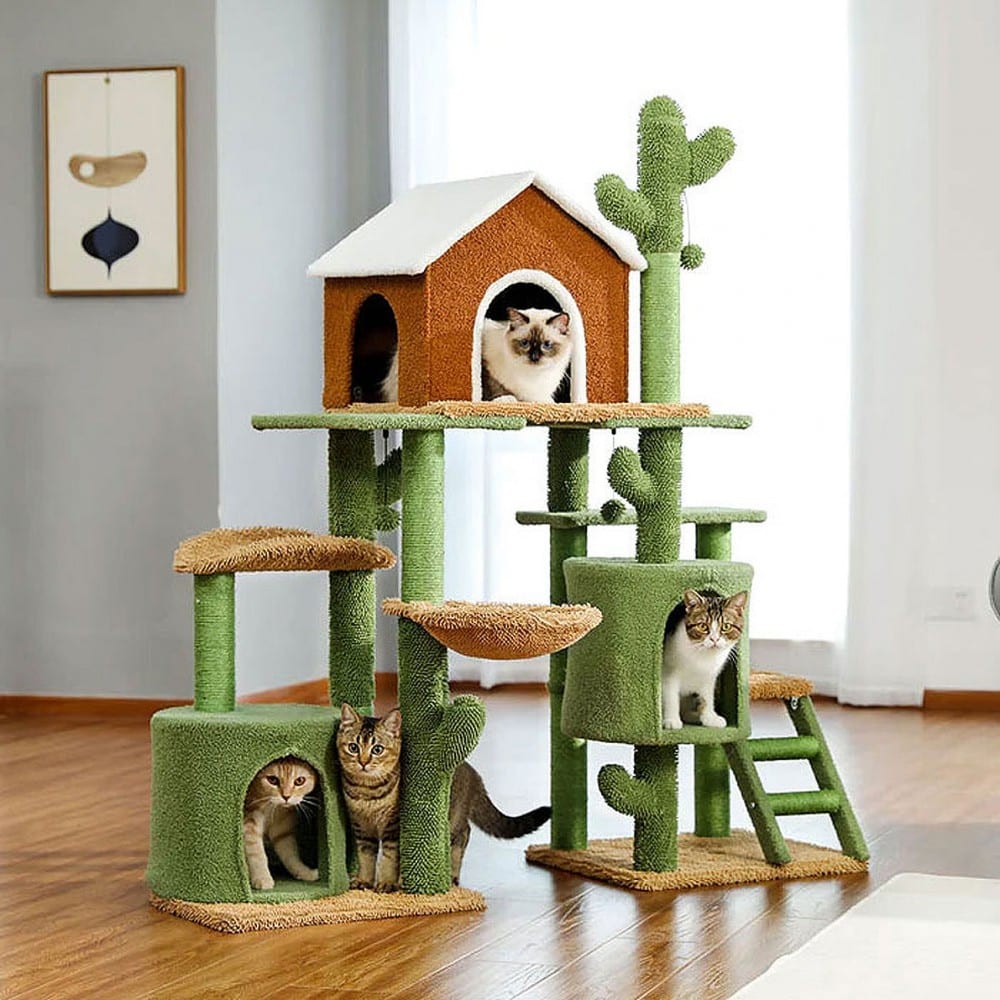Understanding Bengal Cats: Do They Have Behavioral Challenges?
After bringing a Bengal cat into their homes, many people find themselves perplexed by certain behaviors. Activities like not using the litter box properly, aggressive play, scratching, biting, and ruining home furnishings leave many Bengal cat owners wondering, “Is it common for Bengal cats to have behavioral challenges?”
In truth, while Bengal cats can exhibit certain behavioral quirks, it’s a trait shared by many pets. The silver lining? Bengals are intelligent creatures, and with the right guidance and training, they can flourish into well-behaved companions.

Bengal Cat Behavior Problems
Unraveling the Behavior of Bengal Cats
Bengal cats are veritable bundles of energy, always on the move. They rarely settle down until they’ve spent every ounce of their zest.
Acting as the vigilant sentinels of your home, these feline friends often perch on furniture, keenly watching their human family’s every move.
Their innate curiosity is seamlessly coupled with a playful spirit, which could explain the occasional bump or crash you might hear from the kitchen or living room. To ensure their playful tendencies don’t lead them astray, it’s wise to invest in the right toys.
For the endlessly curious Bengal, puzzle toys are an excellent choice, serving to engage both their sharp minds and active bodies. Consider toys that emulate hunting scenarios, such as the GoCat Da Bird or laser pointer toys. They not only offer physical activity but also mentally challenge your feline.
Read: Best 12 Toys Your Bengal Cat Will Love!
If you’ve noticed your Bengal’s tendency to lose interest quickly, consider leaving out cat treat dispensers. Bengals are often food-driven, and what better way to keep them engaged than with a toy that rewards them with tasty morsels? To find the top interactive cat puzzle toys on the market, check out this list.
Understanding Bengal Cats: Top Three Behavioral Concerns
Bengal cats, renowned for their exotic appearance, have some behavior patterns that might perplex owners. The three primary concerns often reported are inappropriate elimination, unpredictable aggression, and persistent vocalization.
First and foremost, many Bengal cat owners have observed their feline friends marking their territory inside the house, often by urinating or defecating outside the litter box. This behavior might stem from a sense of insecurity about their surroundings, causing them to mark their territory more aggressively than other cats.
Secondly, Bengals might occasionally show aggression, manifesting as unexpected biting or scratching. More often than not, this aggressive demeanor arises from boredom or a desire for attention, with the cat’s owner unintentionally becoming the target of this burst of energy.
Lastly, Bengal cats are known for their vocal nature. Their loud meowing isn’t just a call for attention—it might be an indication of hunger, thirst, or again, simple boredom.
To curtail these behaviors, it’s crucial to cater to their unique needs. By understanding and addressing their physical and mental requirements, you can enhance their wellbeing. Consider adding another pet to your household to keep your Bengal company. While another cat might be the first thought, Bengals often get along splendidly with dogs that match their energy and intelligence levels.
Why is My Bengal Cat Showing Aggression Towards Me?
You might recall that I previously touched upon the top three behavioral issues in Bengal cats. Sometimes, despite ensuring they’re well-fed, hydrated, and entertained, Bengals may still exhibit signs of aggression towards their owners. One of the primary reasons for this can be “play aggression.”
Play aggression is a form of behavior where the cat exhibits predatory instincts, such as pouncing, ambushing, scratching, or biting, but it’s all in the name of play. It’s their way of practicing their hunting skills, and unfortunately, sometimes, their favorite “prey” can be you.
But there’s no need to fret! There are ways to channel this energy.
By introducing interactive toys like feather wands or chase toys, you can redirect your Bengal’s playful aggression towards inanimate objects rather than you.
Read:
-
The 20 Best Gifts for Cats
-
15 Cactus Cat Scratchers & Cat Trees for Southwestern Flair
-
12 Best Cat Enrichment Toys in 2024 – Reviews & Top Picks
-
Best 12 Toys Your Bengal Cat Will Love!
Why are Bengal Cats Marking Their Territory Everywhere?
I’ve touched upon this before – the peculiar behavior of Bengal cats leaving their mark all over your house. When they encounter new or unfamiliar scents, their instinct might urge them to establish their territory.
For instance, when you first bring your Bengal cat home, it’s bombarded with a mix of unfamiliar smells. It instinctively seeks out a place to leave its scent, marking its territory.
Similarly, the presence of another animal, whether a household pet or an occasional stray visitor, can also trigger this behavior.
However, if you’ve trained your Bengal to use the litter box and they suddenly start avoiding it, it could indicate a deeper issue. Before jumping to conclusions, consider consulting a veterinarian. It’s essential to rule out health concerns that might be causing this shift in behavior.
Your Bengal cat’s sudden change in litter habits might be a silent cry for help, signaling potential health problems like kidney diseases, urinary tract infections, diabetes, or bladder issues. Always be observant and provide the vet with a detailed account to help diagnose the issue accurately. The sooner you identify a potential problem, the quicker your feline friend can get back to feeling its best.
Why Does My Bengal Cat Have So Much to Say?
Much like every expressive creature, when your Bengal cat gets vocal, it’s attempting to convey something to you. As previously discussed in our segment on the top behavioral issues of Bengal cats, their vocalizations can hint at various emotional or physical needs.
Interestingly, a chatty Bengal might be indicative of their comfort level with you. They might serenade you with their meows when they’re ecstatic, or when their stomach is rumbling for some grub, which could be twice as loud!
Common triggers for their vocal outbursts include hunger, thirst, or plain boredom. But sometimes, it’s just a heartwarming display of affection, camaraderie, or a simple nudge for your undivided attention.
Every Bengal cat has its own unique “language.” The nuances in their tone and pitch can offer clues about what they’re feeling or desiring. So, with keen observation and a bit of patience, you’ll soon be able to decode your Bengal’s verbal cues like an expert.
Read:
-
The 20 Best Gifts for Cats
-
15 Cactus Cat Scratchers & Cat Trees for Southwestern Flair
-
12 Best Cat Enrichment Toys in 2024 – Reviews & Top Picks
-
Best 12 Toys Your Bengal Cat Will Love!
Do Bengal Cats Have Unique Care Needs?
While Bengal cats stem from a blend of domesticated feline lineage, their care isn’t vastly different from that of your regular house cat. However, simply providing food and water isn’t enough for these spirited creatures.
Draw a parallel with dogs: Just as canines require their daily walks and play sessions, Bengals too thrive on interaction.
Routine grooming is essential for them, as is engaging them with toys that stimulate both their minds and bodies. Tailoring their meals to meet specific nutritional requirements is key, along with promptly addressing any behavioral issues. And of course, sprinkle in a dose of love and attention now and then.
If you’ve been ticking all these boxes and still encounter challenges, don’t hesitate to consult your vet. And remember, every new Bengal cat owner learns on the job!
Can Bengal Cats Coexist Harmoniously with Other Felines?
Understanding that Bengal cats exhibit certain behavioral quirks, you might be questioning their compatibility with other cats. Rest assured, they can indeed gel well with fellow felines!
By nature, Bengal cats are inquisitive. When they’re not engaged in play with you, they’re likely finding other ways to keep entertained – and often, another furry friend is just what they seek.
Despite the common notion of cats being loners, Bengals lean more towards the sociable side. They thrive when they have a buddy to share their adventures with.
However, it’s essential to remember that, like many pets, Bengals have a territorial streak. Should another cat encroach upon their space, Bengals might resort to a defensive mode, potentially harming the intruder.
To prevent this territorial behavior from escalating, it’s wise to be cautious if unfamiliar cats frequent your garden or space. A Bengal’s perception of territorial threats can trigger increased aggression.
Read:
-
The 20 Best Gifts for Cats
-
15 Cactus Cat Scratchers & Cat Trees for Southwestern Flair
-
12 Best Cat Enrichment Toys in 2024 – Reviews & Top Picks
-
Best 12 Toys Your Bengal Cat Will Love!
Is Aggressiveness a Trait in Bengal Cats?
Bengal cats aren’t inherently more aggressive than your average domestic cat. These felines are often labeled as aggressive due to occasional incidents where they might lash out at their owners.
However, such behaviors can be curtailed with the right training and understanding. If a Bengal exhibits genuine aggression, there’s usually an underlying reason.
Reasons could range from play aggression (where their playful antics result in unintentional injuries) to past traumas or inadequate socialization. Additionally, abrupt shifts in their environment or daily routines can cause stress and result in such behavior.
It’s essential to approach any sudden aggressiveness with empathy, especially if past trauma or abrupt changes are the cause. For behaviors stemming from play aggression or insufficient socialization, there are effective remedies to help ensure the well-being of your cherished Bengal companion.
Is Disciplining a Bengal Cat Effective?
When it comes to discipline in the traditional sense of meting out punishment for undesirable actions, it’s crucial to understand that Bengal cats don’t process such consequences in the same way humans do. While Bengal cats are known for their intelligence, they aren’t capable of linking punishment directly to their behaviors.
Instead of viewing discipline as a teaching moment, they perceive it as aggression, potentially leading them to retaliate or exhibit even more challenging behaviors.
Rather than disciplining, focus on training and positive reinforcement. Equip yourself with knowledge and patience, and both you and your Bengal cat will reap the rewards.











